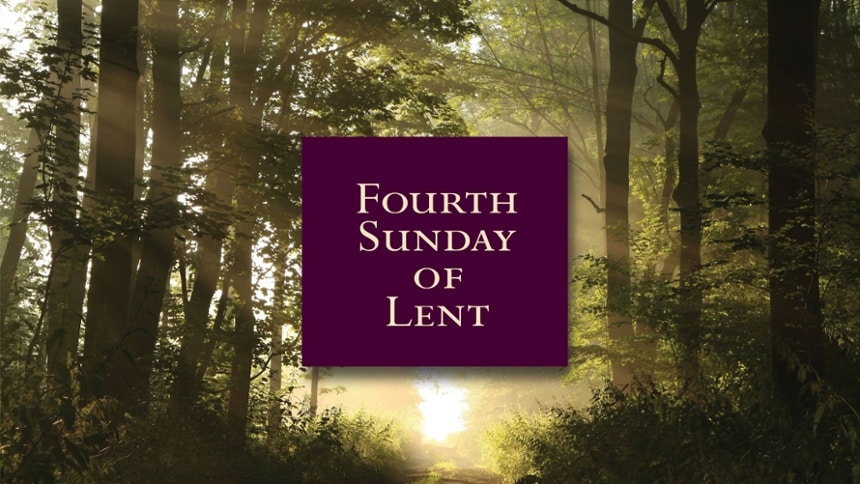Fourth Sunday of Lent | Readings: 1 Samuel 16:1b, 6–7, 10–13a; Ephesians 5:8–14; John 9:1–41
REFLECTION
As the High Holy Days draw near, this Sunday of the “Second Scrutiny” of the catechumens revolved entirely around the theme of light and seeing things truthfully. This problem is at the heart of what almost all ancients saw as the “tragic sense of life.” Our lack of self-knowledge and our lack of wisdom make humans do very stupid and self-destructive things. Because humans cannot see their own truth very well, they do not read reality very well either. We all have our tragic flaws and blind spots. Humans always need more “light” or enlightenment about themselves and about the endless mystery of God.
In the First Reading we have the prophet Samuel able to see what even David’s father, Jesse, cannot see—that this youngest son of less lofty stature, forgotten out in the fields, is the chosen one. “Humans see only appearances, but God sees the heart,” Samuel says. In the Second Reading from Ephesians, we have the text encouraging us to do our own “shadow work,” and to bring our self-deceptions into the light. The catechumens were being encouraged to do a “fearless moral inventory,” as the recovery movement would say today. Somewhere we must bring our shames and our denials into the light, or they kill us from within.
Finally, the great theater-piece Gospel is about a man born blind. Some think it was actually enacted in the sanctuary, with so many clear roles, interacting characters, and dramatic lines. We can only touch upon the surface here, but enough to point you beneath the surface, I hope. Let me list in quick succession the major themes so you cannot miss them:
- The “man born blind” is the archetype for all of us at the beginning of life’s journey.
- The moral blame game as to why or who caused human suffering is a waste of time.
- The man does not even ask to be healed. It is just offered and given.
- Religious authorities are often more concerned about control and correct theology than actually healing people. They are presented as narrow and unloving people throughout the story.
- Many people have their spiritual conclusions before the facts in front of them. He is a predefined “sinner” and has no credibility for them.
- Belief in and love of Jesus come after the fact, subsequent to the healing. Perfect faith or motivation is not always a prerequisite for God’s action. Sometimes God does things for God’s own purposes.
- Spirituality is about seeing. Sin is about blindness, or as Saint Gregory of Nyssa will say, “Sin is always a refusal to grow.”
- The one who knows little, learns much (what we call “beginner’s mind”) and those who have all their answers already, learn nothing.
TODAY’S READINGS
“I do not know whether [Jesus] is a sinner or not, I only know this much, I was once blind, and now I see.” —John 9:25
“I came into the world to divide it, to make the sightless see and to reveal to those who think they see it all that they are blind.” —John 9:39
STARTER PRAYER
“God of all Light and Truth, just make sure that I am not a blind man or woman. Keep me humble and honest, and that will be more than enough work for you.”
¡Haga clic aquí para ver la traducción en español!








